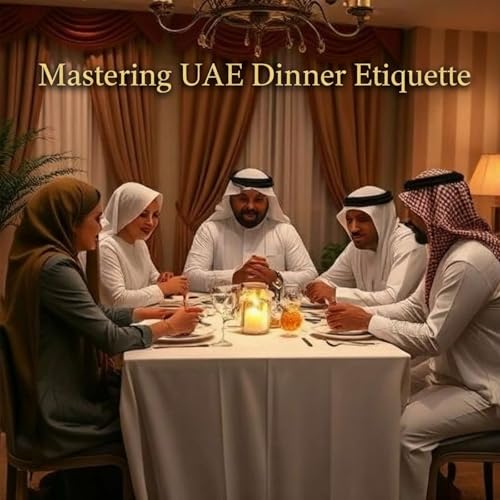
Mastering UAE Dinner Etiquette
Failed to add items
Add to basket failed.
Add to Wish List failed.
Remove from Wish List failed.
Follow podcast failed
Unfollow podcast failed
-
Narrated by:
-
By:
About this listen
Think dinner is just about food? Not in the UAE. Here, the dining table is a stage—a delicate dance of respect, generosity, and silent communication. Mastering UAE Dinner Etiquette unpacks the unspoken rules that turn a simple meal into a lesson in culture, connection, and class. From how to greet your host to the art of accepting Arabic coffee with your right hand, we’ll guide you through every moment that counts. You’ll learn why refusing a second helping might seem rude, what sitting order reveals about hierarchy, and how to read the room when everyone suddenly pauses before the first bite. This episode takes you inside the Emirati home—where tradition meets hospitality so warm it could melt any expat’s uncertainty. You’ll hear from cultural insiders, business leaders, and etiquette experts who’ve learned (and sometimes fumbled through) these customs firsthand. Whether you’re a teacher invited to an after, a business traveler at a male dinner, or an expat hoping to build genuine relationships, understanding these rituals can make or break your impression. It’s not just about which spoon to use—it’s about understanding the rhythm of respect that keeps Emirati culture so elegantly alive. We’ll talk dates and gahwa, kanduras and abayas, the subtle power of modesty, and why conversation topics matter as much as cuisine. And yes—we’ll clear up what to never do with your left hand. At the end of this episode, you won’t just know how to behave at a UAE dinner—you’ll know how to belong. Pull up a chair, pass the plate clockwise, and join us for a crash course in cultural intelligence served with a dash of wit and a generous pour of Arabic hospitality.


